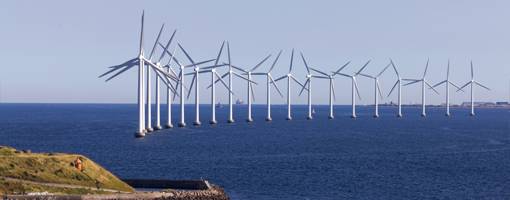The Government has published its strategy for future resources and waste, setting out an intention to double resource productivity and eliminate avoidable waste (including plastic waste) by 2050.
Our Waste, Our Resources explains how the Government will preserve material resources by minimising waste, promoting resource efficiency and moving towards a circular economy and minimise the damage caused to the natural environment by reducing and managing waste safely.
With a forward-looking plan for actions to be taken now and commitments for the future, the strategy is also aligned with the 25 Year Environment Plan.
Edward Collins, CEO of Earth Capital Partners, a specialist investment company applauded the announcement, both environmentally, and as an opportunity for harnessing finance: “It’s good to see the UK government taking the lead on such an important issue. We’re already seeing large amounts of investment in new and innovative technologies to deal with waste, and believe that it’s a huge opportunity for investors to make a meaningful difference, whilst also benefiting from strong returns.”
The strategy also includes proposals for a bottle deposit scheme, with a returnable deposit on bottles, cans and disposable – in something of a return to the Corona deposit scheme that was popular in the 1970s. Household recycling is also to be made more consistent and easier, both in the collection and in terms of the information provided by producers.
Since the last review of waste strategy over a decade ago concerns over the environmental impact of consumption have grown, and the direct and indirect consequences of plastic use and waste.
The Government is also determined to make producers of materials responsible for their disposal. This is in part driven by an acknowledgement that this is a truly global issue, and also the declining options to ‘offshore’ the issues.
As Michael Gove notes in his introduction to the strategy document: “The consequences of every country’s behaviour are seen and felt across the world. Pollution knows no national boundaries – it damages the global environment as well as our own landscapes, rivers and seas. And countries are responding to the threat they face. Nations such as China are no longer prepared to accept lower quality waste materials; nor indeed should this nation be offshoring its waste for others to deal with.”
Many of the items are still for consultation, but it is clear the Government is taking serious steps to truly and protect the environment and ‘green’ its policies and follows its introduction of a tax on plastic packaging proposed in the Autumn Budget.
Full document here.
Latest News
-
Premier League and Comic Relief partnership aims to improve children’s mental health
-
Russell Hobbs launches food poverty campaign in schools
-
Tottenham Hotspur and charities launch film to tackle mental health stigma
-
Cardfactory funds homelessness charity’s team of psychologists
-
Bingo firm raises £300,000 for the Stroke Association
-
Sainsbury’s links up with Comic Relief for festive recipe campaign
© 2019 Perspective Publishing Privacy & Cookies







Recent Stories